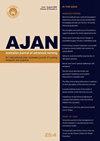Evaluating the impact of reflective practice groups for nurses in an acute hospital setting
IF 1.3
4区 医学
Q3 NURSING
引用次数: 7
Abstract
Objective: This study represents phase one of a three-year research project aiming to investigate the impact of reflective practice groups for nurses. Background: Evidence indicates that increased job demands, and inadequate support contribute to nursing burnout, reduced capacity and workplace attrition. There is some evidence that group interventions may help address such issues. Study Design/Methods: This study utilised a cross sectional, quantitative research methodology. Overall, 251 nurses completed questionnaires incorporating 11 validated subscales. Levels of compassion satisfaction, intolerance to uncertainty, inhibitory anxiety, group cohesiveness, psychological distress, and psychosocial safety were evaluated in relation to number of groups attended, for both individual nurses and work groups. The data was then examined alongside existing personal and job resources. Results: Individual nurses who attended 6–18 reflective practice groups demonstrated increased tolerance to uncertainty and less inhibitory anxiety, whilst those who attended more than 18 groups demonstrated increased compassion satisfaction and group cohesiveness. There was, however, no evidence to indicate more pervasive, work group benefits. Whilst the second part of the study confirmed that reflective practice group attendance was significantly correlated with increased compassion satisfaction, it was not able to explain changes in levels of burnout, secondary traumatic stress or compassion satisfaction over and above personal factors, job factors and levels of psychological distress. Conclusion: Professional quality of life involves a complex set of variables. Reflective practice group attendance is correlated with a number of benefits for nurses however cause and effect were not clearly determined. A subsequent study will focus on the more subtle mechanisms and indirect effects of the groups on nurses’ personal resources. Relevance: This research supports the role of person and job factors in explaining professional quality of life for nurses and provides evidence to support a number of positive outcomes for nurses attending reflective practice groups; establishing a foundation for future studies to explore impacts and mediators in greater detail. What is already known about the topic? Personal and job resources can buffer against job demands to improve Professional Quality of Life (ProQoL). Nurses who lack personal resources are more likely to report burnout. What this paper adds: Personal resources of autonomy, self-efficacy and optimism are particularly important for nursing ProQoL. Higher levels of RPG attendance are correlated with improved tolerance to uncertainty, reduced inhibitory anxiety, increased compassion satisfaction and improved group cohesion. An explanatory link between RPG and variations in ProQoL is still not clear as RPG attendance in itself was not found to account for changes in ProQoL over personal resources, job resources and job demands. The study identifies a direction for further research into the role RPG may play in the development of personal resources for nurses.评估反思性实践小组对急诊医院护士的影响
目的:本研究是一个为期三年的研究项目的第一阶段,旨在调查反思性实践小组对护士的影响。背景:有证据表明,工作需求的增加和支持的不足会导致护理倦怠、能力下降和工作场所流失。有一些证据表明,集体干预可能有助于解决这些问题。研究设计/方法:本研究采用了横断面定量研究方法。总的来说,251名护士完成了包含11个经验证的分量表的问卷调查。评估了个体护士和工作组的同情满意度、对不确定性的不容忍度、抑制性焦虑、群体凝聚力、心理困扰和心理社会安全水平与参加人数的关系。然后,这些数据与现有的个人和工作资源一起进行了检查。结果:参加6-18个反思性实践小组的护士个体表现出对不确定性的容忍度增加,抑制性焦虑减少,而参加18个以上小组的护士表现出同情心满意度和团队凝聚力增加。然而,没有证据表明工作组的福利更为普遍。虽然研究的第二部分证实,反思性实践小组的出勤率与同情满意度的增加显著相关,但它无法解释倦怠、继发性创伤压力或同情满意度的变化,而不仅仅是个人因素、工作因素和心理困扰水平。结论:职业生活质量涉及一组复杂的变量。反思性实践小组出勤率与护士的许多福利相关,但因果关系尚不明确。随后的一项研究将重点关注这些群体对护士个人资源的更微妙的机制和间接影响。相关性:这项研究支持个人和工作因素在解释护士职业生活质量方面的作用,并为参加反思性实践小组的护士提供了支持一些积极结果的证据;为未来的研究奠定基础,以更详细地探索影响和媒介。关于这个话题已经知道了什么?个人和工作资源可以缓冲工作需求,以提高职业生活质量(ProQoL)。缺乏个人资源的护士更有可能报告倦怠。本文补充道:自主性、自我效能感和乐观主义的个人资源对护理ProQoL尤为重要。RPG出勤率越高,对不确定性的容忍度越高,抑制性焦虑越低,同情心满意度越高,团队凝聚力越强。RPG和ProQoL变化之间的解释性联系仍然不清楚,因为RPG出勤率本身并不能解释ProQoL在个人资源、工作资源和工作需求方面的变化。这项研究确定了进一步研究RPG在护士个人资源开发中可能发挥的作用的方向。
本文章由计算机程序翻译,如有差异,请以英文原文为准。
求助全文
约1分钟内获得全文
求助全文
来源期刊
CiteScore
2.30
自引率
7.10%
发文量
27
审稿时长
>12 weeks
期刊介绍:
The Australian Journal of Advanced Nursing publishes a wide variety of original research, review articles, practice guidelines, and commentary relevant to nursing and midwifery practice, health- maternity- and aged- care delivery, public health, healthcare policy and funding, nursing and midwifery education, regulation, management, economics, ethics, and research methodology. Further, the journal publishes personal narratives that convey the art and spirit of nursing and midwifery.
As the official peer-reviewed journal of the ANMF, AJAN is dedicated to publishing and showcasing scholarly material of principal relevance to national nursing and midwifery professional, clinical, research, education, management, and policy audiences. Beyond AJAN’s primarily national focus, manuscripts with regional and international scope are also welcome where their contribution to knowledge and debate on key issues for nursing, midwifery, and healthcare more broadly are significant.

 求助内容:
求助内容: 应助结果提醒方式:
应助结果提醒方式:


